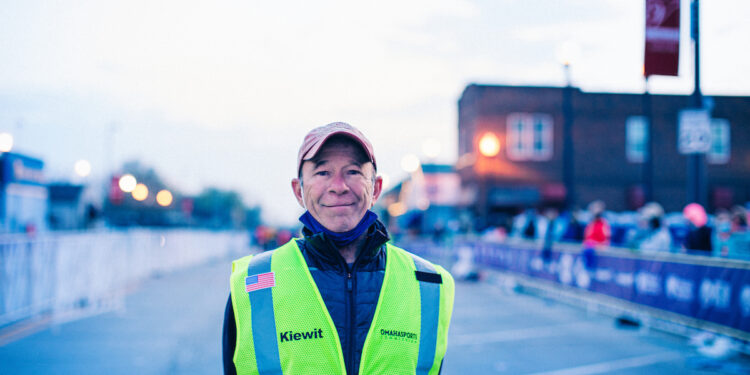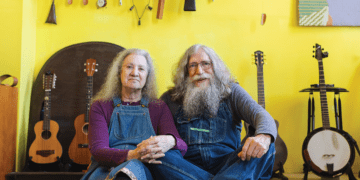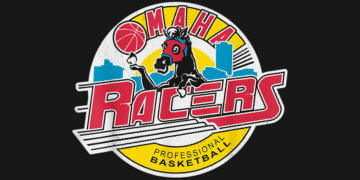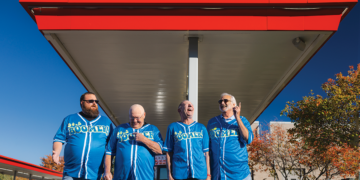Will Lindgren is constantly running. He started running at a young age, and by 1983 was running marathons.
Lindgren is the executive director at Nebraska Run Guru Elite, Inc. and has run over 80,000 miles in his 63 years. He is also a coach who trained Nebraskan James McGown to run in the Olympic Trials in 2004 and 2008. Lindgren was the head of USA Women’s Track and Field Long Distance Running National Championships Chair from 2002-2009, during which time Team Nebraska was included in the original list of 10 clubs of the USA Track and Field Elite Development Club program.
Lindgren still runs 10-15 miles, two to three times per week. As an athlete and coach, he knows that proper nutrition is as important to a runner as the proper pair of shoes. These days, however, Lindgren and his partner, Linda Kunasek, are running terraces more than marathons.
In 2013, Lindgren and Kunasek lived on a property in the Twin Rivers area of Waterloo, Nebraska. They wanted to live more of a down-to-earth lifestyle, pickling, canning, and freezing the food they grew. They sold food through their business, Bar None Produce, emphasizing locally grown organic produce, and free-range chicken eggs. They didn’t sell much honey, but they got their own honey from their bees, an important part of the process for the pollination that came from the insects. Much of their clientele was cancer survivors who were concerned about pesticides/herbicides in their already immunocompromised bodies and athletes who wanted to fuel their bodies in the best way possible.
Their location between the Platte and Elkhorn rivers gave them fertile soil, and Lindgren enjoys making his own potting soil. He learned from a noted organic gardener named Eliot Coleman, who creates organic soil from a mix of peat moss; lime; equal parts blood meal, colloidal phosphate, and greens; and other components. They only use organic waste from leaves, grass, or chicken manure to further enrich the soil.
They sold at Village Pointe Farmer’s Market for several years. Then Lindgren began to branch out. He had a fantastic crop of tomatoes, and he thought “someone must want these tomatoes, they are perfect.” So he drove down Dodge street, stopping in to every restaurant he could think of to hawk his wares. Although he didn’t have much success on Dodge Street in Omaha at first, he made a friend of René Orduña (across the river) of Dixie Quicks. Lindgren became the main provider of collard greens and green tomatoes for Dixie Quicks until they closed in 2018. He also sold his tomatoes to Brushi—4,000 pounds worth of tomatoes in 2018, and 20-25 dozen eggs to Pitch that same year.
Then came the flood of March 2019. Lindgren and Kunasek’s three-acre property was devastated. Although the owners could have returned to their property and continued to work the land, they did not feel right about it.
“We received guidance from UNL and Douglas County that we should not sell food produced off the ground,” Lindgren said. “I just lost confidence in being able to produce organic food.”
That was an important factor in Lindgren and Kunasek’s lifestyle as athletes and farmers. Without being able to grow organic food, the pair sold their farm and bought a camper. They spent that summer traveling around the country, visiting national parks and living a nomadic lifestyle.
Ultimately, the couple wanted someplace to call home where they could again grow organic food, and that led them to Wahoo, Nebraska.
The couple bought their one-acre property in August 2019, in what normally would have been the height of their farming season. They lived in their camper for the next three months while their home was being built, and began thinking about farming again.
The new property in Wahoo is on a hill, hopefully helping to protect their farm from future flooding. They terraced the hill on which they plant their vegetables. While their neighbors use farm implements such as tractors, Lindgren and Kunasek farm by hand, painstakingly putting seeds in the ground and pulling the weeds that threaten their plants’ survival.
“We’re marathoners and we can’t marathon anymore,” Lindgren said.
The couple do successional gardening, starting with hardy plants such as carrots, radishes, and beets, planting lots of greens such as parsley and kale, and moving into peppers and tomatoes as the weather warms throughout the summer.
Farming has exposed Lindgren to new produce, also. He had never eaten kohlrabi, a Martianesque vegetable in the same species as cabbage and broccoli, before a couple of years ago. The crisp, bulbous vegetable quickly became a favorite to eat and grow, and this year, Lindgren said he planned to devote 1,200 square feet to it.
Lindgren’s looking forward to the 2021 gardening season. His favorite part is seeing the tiny seeds he planted germinate.
“I love it when I start with something that hasn’t been developed, whether that’s runners or food, and I can give it fuel, water, and education or germination,” Lindgren said.
Along with plots dedicated to kohlrabi and other favorites such as several varieties of peppers, the couple are dedicating a 100-square-foot plot of land to the Native American crops known as the three sisters—corn, beans, and squash. The seeds are put into the same mound of earth and allowed to support and feed off of one another.
“We are excited to do homage to those who have tended the land long before us,” Lindgren said.
This article originally appeared in the 60+ section of the June 2021 issue of Omaha Magazine. To receive the magazine, click here to subscribe.














